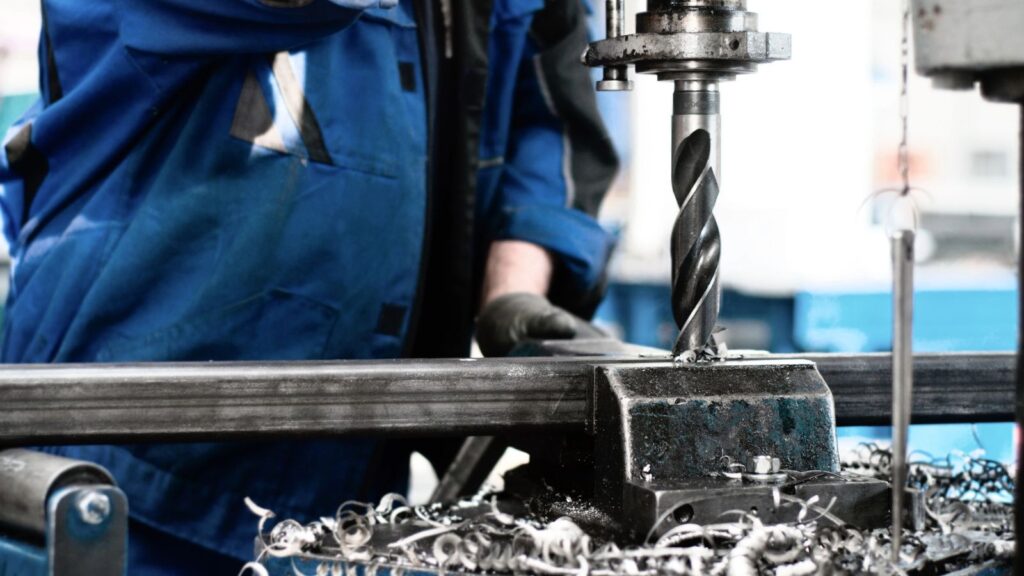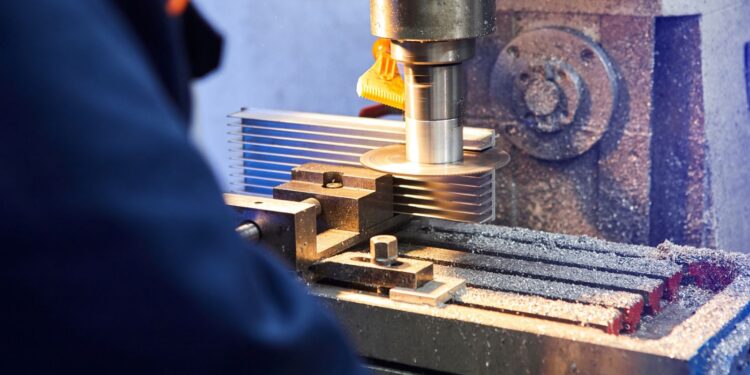Starting a fabrication shop can be exciting, especially if you have the skills and resources to create high-quality, custom metal products. However, the process of setting up a fabrication shop involves careful planning and thoughtful investment. In this article, we will cover the essential elements you need to know before you begin your journey into the world of fabrication.
Assessing the Scope of Your Fabrication Shop
Before diving into the equipment and logistics of your new shop, it’s important to assess the scope of your business. What types of materials will you work with? Will you specialize in welding, machining, or a combination of both? Understanding your niche will guide the type of equipment you need to purchase and the scale of your operation. For instance, will you be serving small custom orders, or will you handle large-scale industrial projects?
By clarifying the scope of your work, you’ll have a clearer vision of the shop size, the manpower required, and the specific tools that will be most beneficial for your business.
Essential Equipment for a Fabrication Shop
Every fabrication shop requires certain key pieces of equipment that are necessary for cutting, welding, shaping, and finishing metal products. At the core of your shop, you’ll need:
- Cutting Tools: These include plasma cutters, laser cutters, and oxy-acetylene torches.
- Welding Machines: MIG, TIG, and stick welding machines are essential for joining metals.
- Bending and Forming Tools: These can include manual or hydraulic presses for bending metal.
- Finishing Equipment: Buffers, sanders, and grinders to smooth out the edges and finishes of metal products.
It’s important to choose high-quality equipment that matches the scale and specific needs of your shop. Proper investment in equipment will directly impact your shop’s productivity, quality of work, and long-term success.
Ironworker Tools: An Indispensable Addition
One of the most essential tools for a fabrication shop is the ironworker. Ironworkers are versatile machines that combine multiple functions into one, including cutting, punching, and bending metal. These machines can handle a variety of metal types, including mild steel, aluminum, and stainless steel, making them indispensable for high-volume fabrication.
Ironworker tools allow for faster, more efficient metalworking, making them a must-have for anyone serious about running a fabrication shop. Their ability to process metal quickly and accurately will greatly improve your shop’s production capacity and quality.
If you’re looking for reliable and durable equipment for your fabrication shop, Onix Machinery is a great place to explore for more information on ironworker machines.

Safety and Compliance Standards
Safety is a top priority in any fabrication shop. Not only are the tools and equipment powerful and potentially dangerous, but there are also other hazards such as flying sparks, heavy lifting, and exposure to welding fumes. Therefore, having a strong focus on safety is crucial to the well-being of your team.
Make sure your shop adheres to all OSHA standards and local regulations regarding workplace safety. This includes providing personal protective equipment (PPE) such as gloves, goggles, face shields, welding helmets, and hearing protection. Additionally, proper ventilation and exhaust systems are essential to safeguard workers from toxic fumes.
You will also need to ensure that all employees are trained on safety procedures and that your workspace is compliant with all relevant laws. Taking these steps will reduce the risk of accidents and injuries, creating a safer environment for both employees and customers.
Silencers for Noise Control
Fabrication shops are often noisy places, especially when working with heavy-duty equipment like plasma cutters, welders, and ironworkers. Prolonged exposure to high noise levels can lead to hearing damage, which is why it’s important to consider noise control measures.
Silencers can help to significantly reduce the decibel levels produced by your shop’s equipment. These can be installed on machines such as plasma cutters, grinders, and other loud tools to help minimize the overall noise in your shop. Not only does this protect your workers’ hearing, but it also creates a more pleasant work environment.
Moreover, managing noise pollution can also help you maintain a good relationship with neighbors, especially if your shop is located in a mixed-use area. For more information on how to implement effective noise control strategies, visit website of Vaw Systems to explore their silencer solutions.
Building a Skilled Team
No fabrication shop can succeed without a talented and skilled team. Welding, machining, and fabrication are specialized trades, so it’s important to hire workers who have the proper training and experience. Additionally, offering training programs for your employees can help keep your team’s skills up to date with industry standards.
Look for individuals with certifications in welding or metalworking, and consider offering apprenticeships or in-house training programs to help your team grow and improve. A well-trained workforce can significantly boost the productivity and quality of your shop’s output.
Efficient Workflow and Space Management
A well-organized shop layout is essential for maximizing productivity. The equipment and tools you purchase need to be arranged in a way that minimizes downtime and ensures an efficient flow of work. In a typical fabrication shop, materials will need to be cut, welded, and finished before being shipped out. Ensuring that there’s a logical sequence to this process will reduce wasted time and effort.
Consider the size of the space and how you can arrange it to optimize workflows. A good practice is to keep the raw materials on one side of the shop and the finished products on the other. This can help streamline the movement of materials and reduce unnecessary handling.
Conclusion
Starting a fabrication shop requires careful thought and investment. From selecting the right equipment to ensuring a safe and efficient workspace, every step is important to your shop’s long-term success. Be sure to consider essential tools like ironworker machines, implement safety standards, and plan your shop layout effectively. By focusing on these fundamental aspects, you’ll be well on your way to building a successful and profitable fabrication shop.
















